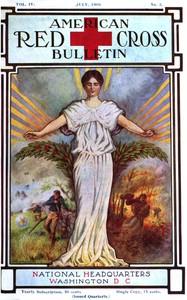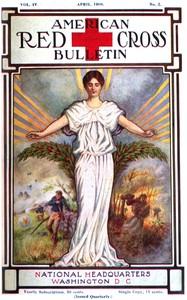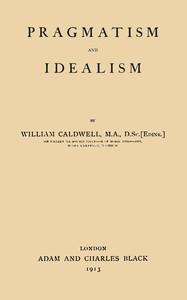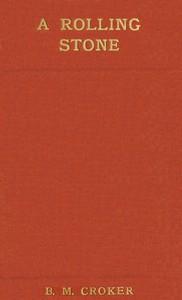Read this ebook for free! No credit card needed, absolutely nothing to pay.
Words: 82543 in 19 pages
This is an ebook sharing website. You can read the uploaded ebooks for free here. No credit cards needed, nothing to pay. If you want to own a digital copy of the ebook, or want to read offline with your favorite ebook-reader, then you can choose to buy and download the ebook.
NOTE ON THE MEANING OF "PRAGMATISM" 21
CONCLUDING REMARKS 262
INDEX 267
PRAGMATISM AND IDEALISM
INTRODUCTORY
Pragmatism has by this time received so much attention in the reflective literature of the day that any writer upon the subject may now fairly presume upon a general acquaintance with its main principles and contentions. Indeed, it is probable that most thinking people may be credited with the ability to have formed some sort of judgment of their own about a philosophy whose main contention is that true ideas are working ideas, and that truth itself, like a creed or a belief, is simply a working valuation of reality. There are still, however, some things to be said, at least in English, upon the place and the meaning of Pragmatism in the philosophical reconstruction that is generally felt to be so necessary to-day.
As far as the external signs of any such vital relation between Pragmatism and our recent academic philosophy are concerned, the reader may be aware, to begin with, that there have been many important concessions made to pragmatists by such representative rationalists as Mr. Bradley and Professor Taylor, not to speak of others, and Pragmatism has certainly had a very powerful effect upon the professional philosophy of both England and Germany, judging at least from the extent to which many of the more prominent representatives of philosophy in these countries have apparently been compelled to accord to it at least an official recognition.
Pragmatism, again, in consequence of the different receptions that it has met with at the hands of its friends and its foes, has undergone various phases of exposition and of modification, although it has not yet, nor is it on the whole likely to have, a philosophical output comparable to that of Idealism. It has become more and more conscious of its own affiliations and relations to older, and to broader doctrines, declaring itself, in the hands of Professor James and his friends, to be but a new name for older ways of thinking. And it has succeeded, in a measure, in clearing itself from liability to the superficial interpretation that it met with a few years ago, when it was scoffed at for teaching that you may believe "what you like," for speaking, for example, as if the "theoretical" consequences of truth were not to be considered as well as the "practical." Although still resting in the main upon an outspoken declaration of war against Rationalism, it is no longer blind to the place and the value of thought or the "concept," in the matter of the interpretation of our experience.
Whether this be so or not, it has been in the main the work of James to set forth the meaning of Pragmatism as a philosophy of everyday life, as the theory of the attitude of man as man to the world in which he finds himself. Dr. Schiller, again, it is claimed, has done much to set forth Pragmatism to the world as an essentially humanistic philosophy, recognizing and providing for the rights of faith and of feeling in determining our beliefs and our theories about things. This philosophy has "much in common with what in other quarters is called Personalism." It cannot, however, be differentiated so sharply as Dr. Schiller apparently would have us believe from the many manifestations of this philosophy that abound in modern times, from Fichte, and from Lotze, down to men who are still living--Eucken and others. The ingenious Professor Dewey, moreover, is the champion of the scientific, or the empirical, or the "instrumental" method in philosophy, and has worked hard and successfully at the reform which he thinks must take place in logical and philosophical conceptions when interpreted as simply tools or devices for the economy of our thought.
When, in pragmatist fashion, we seek to judge of Pragmatism by this last-mentioned matter of its results, by the things it has enabled its advocates to accomplish, we find that we may, to begin with, speak in the following terms of the work of Professor James. He has certainly indicated how the pragmatist method may be applied to the solution of some of the ordinary difficulties of reflective thought; about, for example, the nature of matter or the nature of the soul, or about the old opposition between the "one" and the "many," about such concepts as "thing," "kinds," "time," "space," the "fancied," the "real," and so on. In all such cases an answer, he holds, is obtained by putting, say, the initial difficulty in the following form: "What practical difference can it make now that the world should be run by matter or by spirit?"
A fair illustration of his meaning here would be his own characteristic attitude, so far as the philosophy of religion is concerned, to the so-called "theistic" proofs that have been part of the stock in trade of rational theology. A "necessary being" and a "whole of truth" and the "Absolute" are not, he would hold, what the average man understands by God; they have hardly any perceptible effect upon life and conduct--the all-important matter in the thought of God as he conceives it. Only those notions, he would have it, which can be interpreted by the thought of the "difference" they make to our practical conduct are real notions at all--"Providence," say, or "God" as the guarantor of the reality and the permanence of the moral order, and so on. The "soul," again, he would hold, "is good for just so much and no more." And a similar thing, too, would be true about Berkeley's "matter," or about the "matter" of the materialists. This latter, for instance, cannot possibly do all it is claimed to be able to do in the way of an explanation of the order of the world and the phenomena of life.
Then again, James has written a great many pages upon the so-called deeper view of human nature taken by Pragmatism in comparison with that entertained by Rationalism. We shall have occasion to return to this point.
Free books android app tbrJar TBR JAR Read Free books online gutenberg
More posts by @FreeBooks

: The American Red Cross Bulletin (Vol. IV No. 3 July 1909) by American National Red Cross - American National Red Cross Periodicals; Red Cross and Red Crescent Periodicals


: The American Red Cross Bulletin (Vol. IV No. 2 April 1909) by American National Red Cross - American National Red Cross Periodicals; Red Cross and Red Crescent Periodicals








